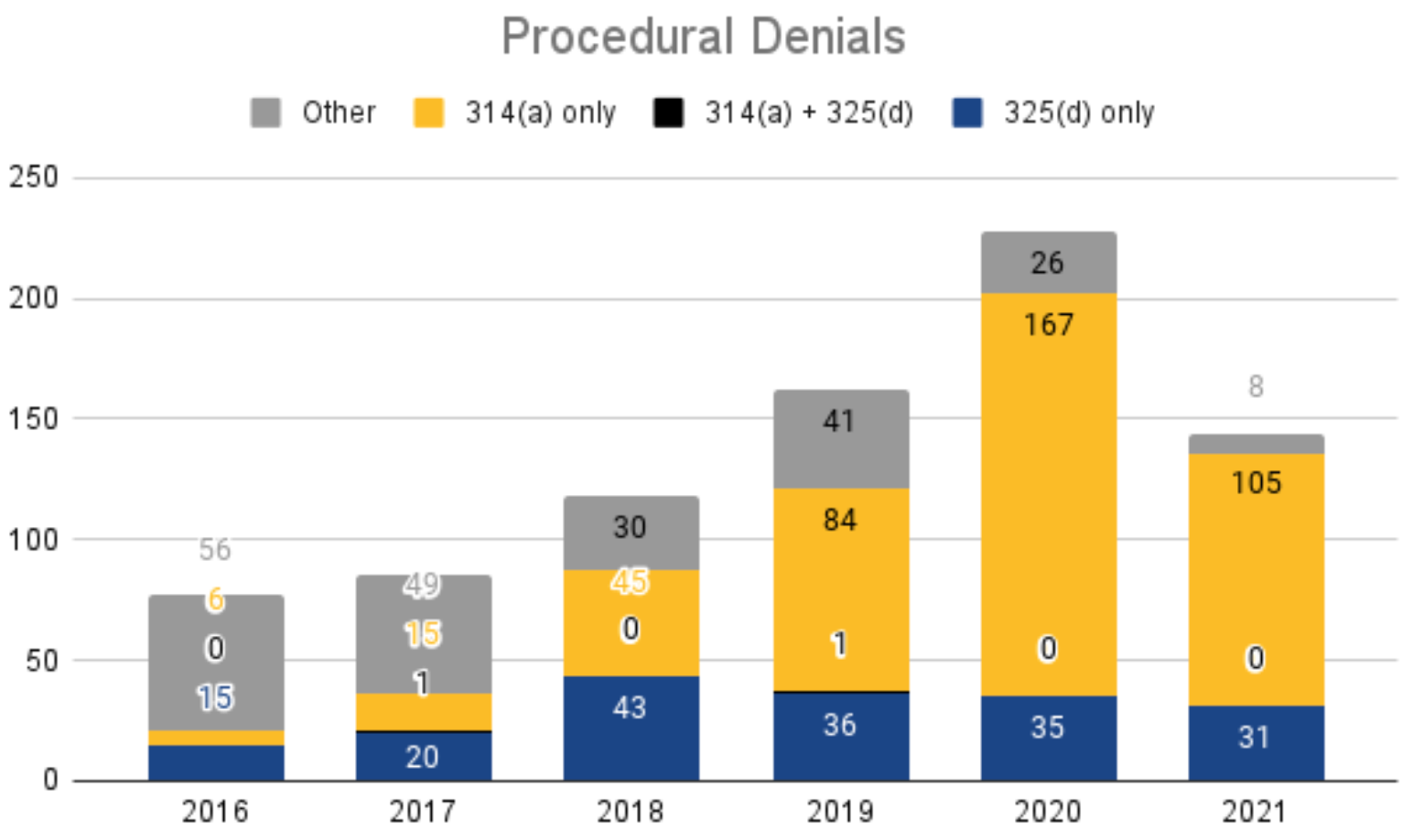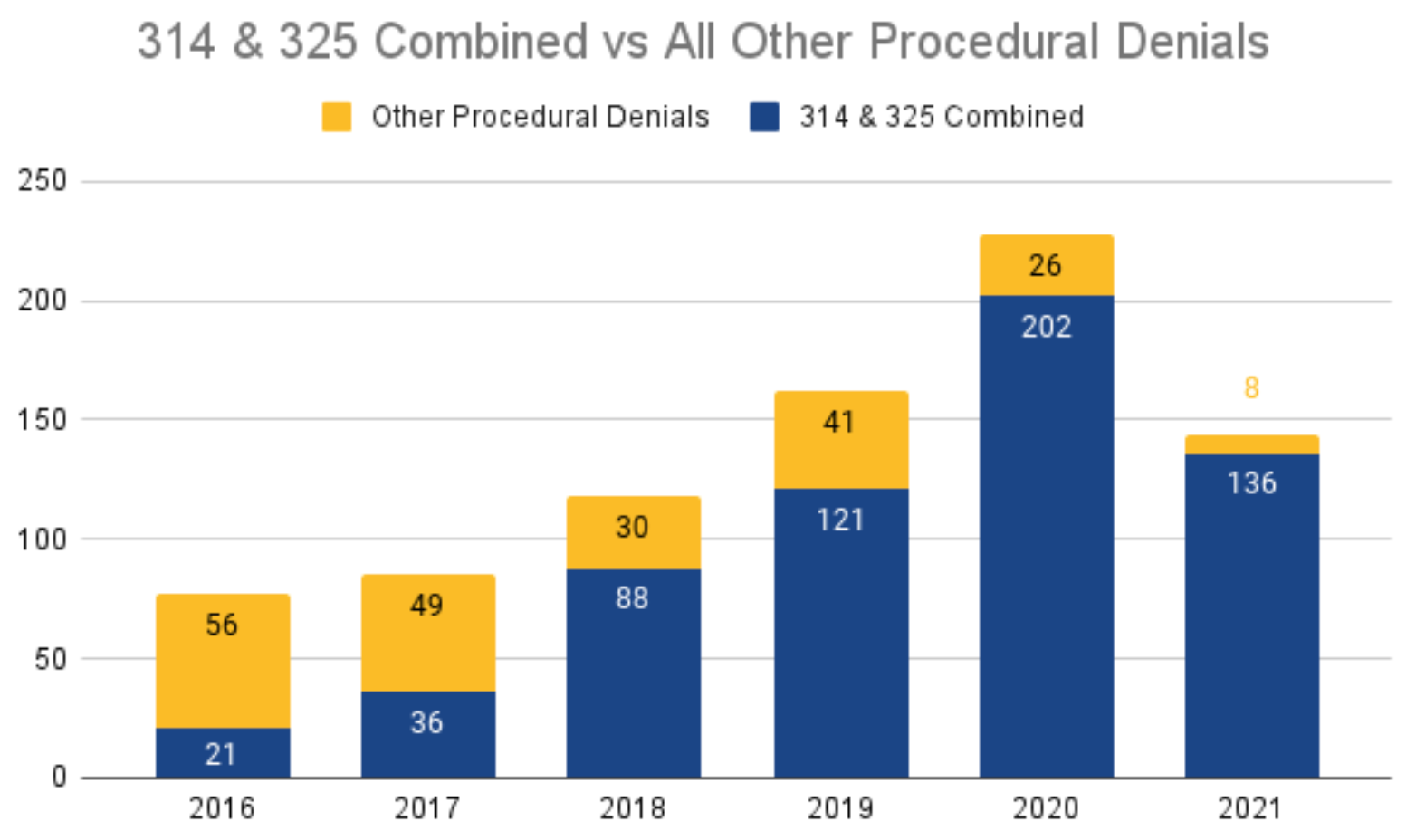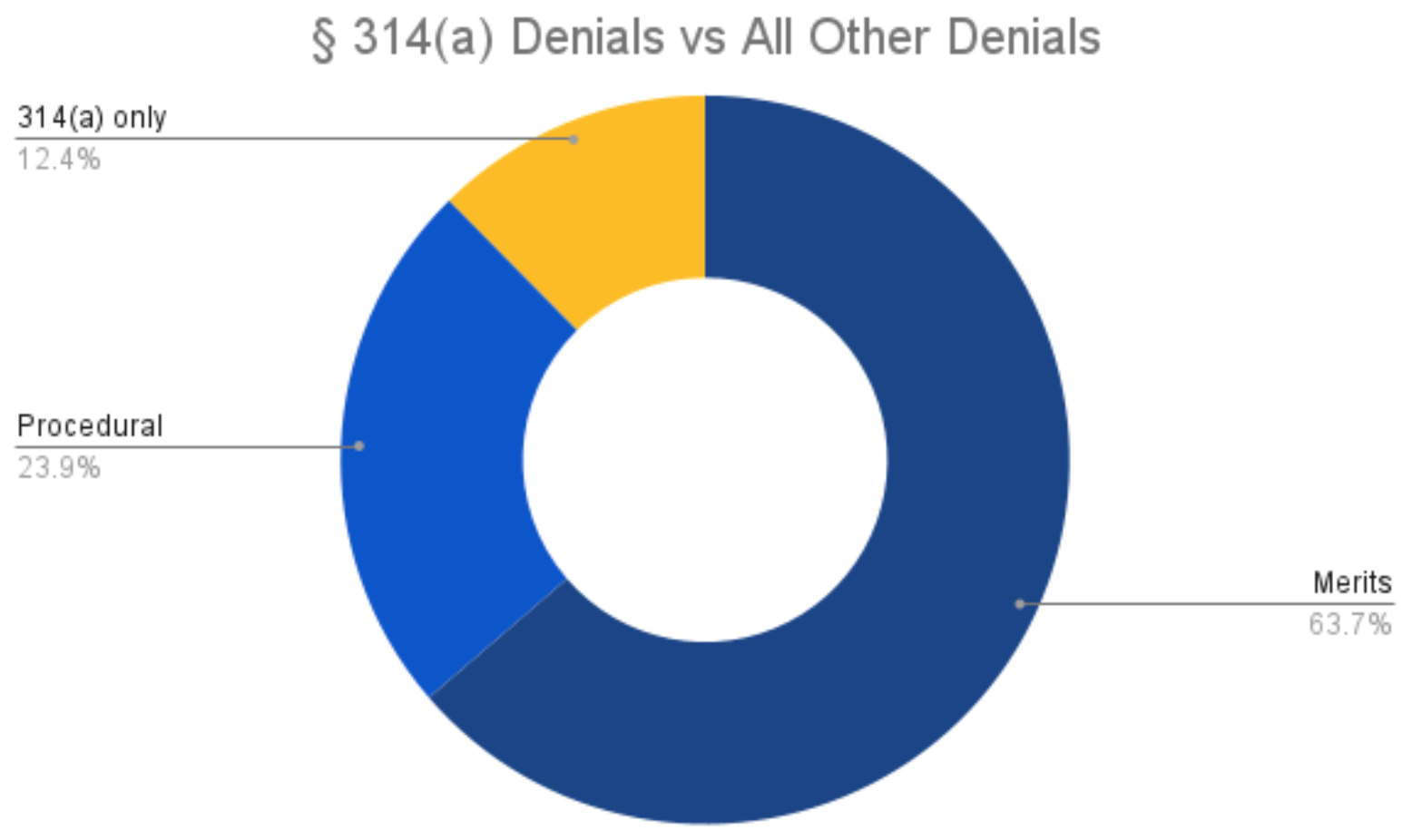2021 is current through September 8, 2021
Institution decisions are generally down in 2021 to date, compared to previous years. Nonetheless, the USPTO’s use of procedural denials rivals last year’s. In 2020, nearly 19% of all institution decisions were denied procedurally, whereas this year, over 16% are denied—over 144 of the 377 denials to date have been denied under the Board’s discretion. In other words, almost 40% of all denials this year have been non-substantive.
A total of 105 decisions were made on the basis 314(a) and 31 decisions were made on the basis of 325(a). The 105 314(a) denials accounts for 73% of all denials. That is, compared to 2019 in total, no change—in 2019, 314(a) denials accounted for roughly 73% as well.
Over 94% of all procedural denials this year stem from either 314(a) or 325(d). In 2020, 88.5% of denials stemmed from these from 314(a) or 325(d). This year has seen a 5.5% increase from last year.
Section 314(a) denials are now used by the Board roughly 12.4% of the time, an 0.2% increase from last quarter.
Meanwhile, 325(d) denials have slightly increased to 5.7% from the year-over-year average of 5%.
NHK Spring/Fintiv continues to be the dominant framework of 314(a) denials. This year has seen 77, nearly reaching the previous-year high of 85. NHK Spring/Fitniv accounts for 73% of all 314(a), whereas in 2020 only 51% were based on the Fintiv framework. This is a 23% increase from last year.
















